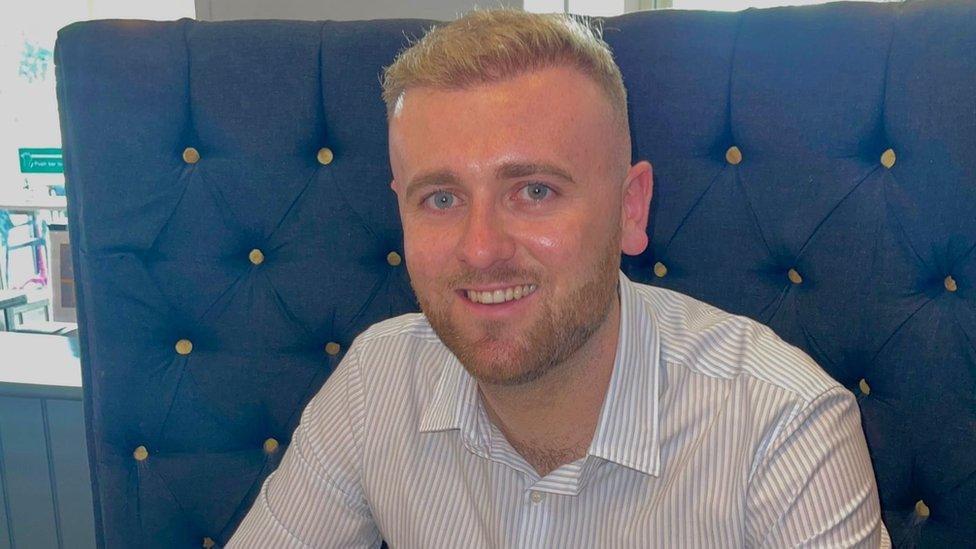Being LGBTQ+ 18 years after anti-gay Section 28 education law
- Published
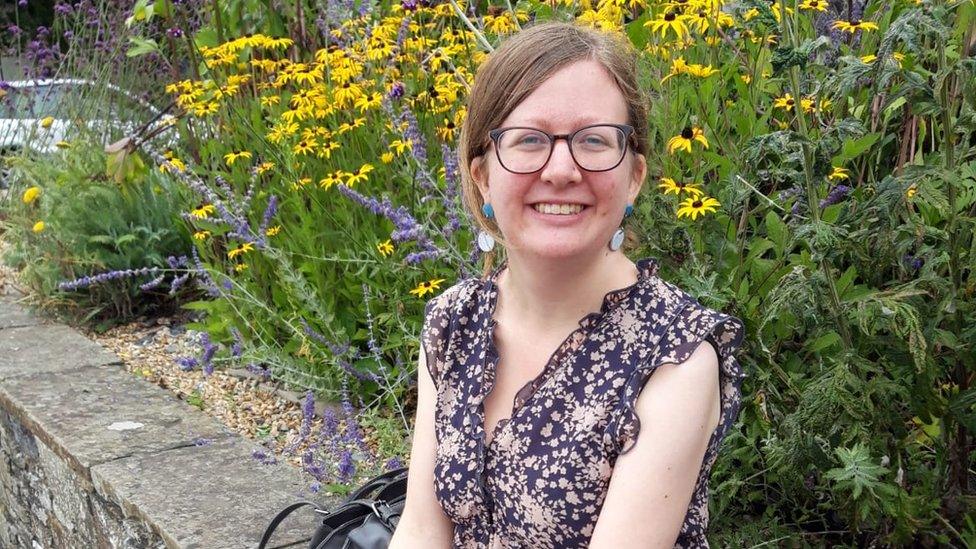
Kirsten Miller says 18 years after Section 28, the act still leaves its scars
A law which banned schools from teaching about homosexuality "gaslit" LGBTQ+ people, a woman who was in school at the time has said.
Section 28 of the Local Authorities Act was introduced in May 1988 and prohibited "the promotion of homosexuality by local authorities".
Kirsten Miller, 34, from Cardiff, said "the silence" from authority figures while growing up lesbian was hardest.
The law was repealed in 2003 but has "left a scar", said Kirsten.
How did Section 28 come about?
Lesbian activists invaded a BBC TV news studio as it went live on air protesting Section 28
The law was partly inspired by public backlash to a 1983 Danish story book called Jenny Lives with Eric and Martin, which was one of the first English-language books to discuss homosexuality.
It was also at the time of the AIDs and HIV epidemic which saw "generally a hostile atmosphere towards LGBTQ+ people", said historian and sociologist Jeffery Weeks.
At the time, Prime Minister Margaret Thatcher had said: "Children who need to be taught to respect traditional moral values are being taught that they have an inalienable right to be gay.
"All of those children are being cheated of a sound start in life."
While the law explicitly said homosexuality, it was a "blanket ban that cast a shadow over the whole context of living" for LGBTQ+ people more broadly, Mr Weeks said.
While no-one was ever charged under Section 28, Mr Weeks said "more insidiously it was sort of internalised and the effects were more indirect than direct".
The law, which was met with mass protests by LGBTQ+ campaigners, was scrapped in Scotland in 2000 and the rest of the UK in 2003.
'Did a lot of damage'
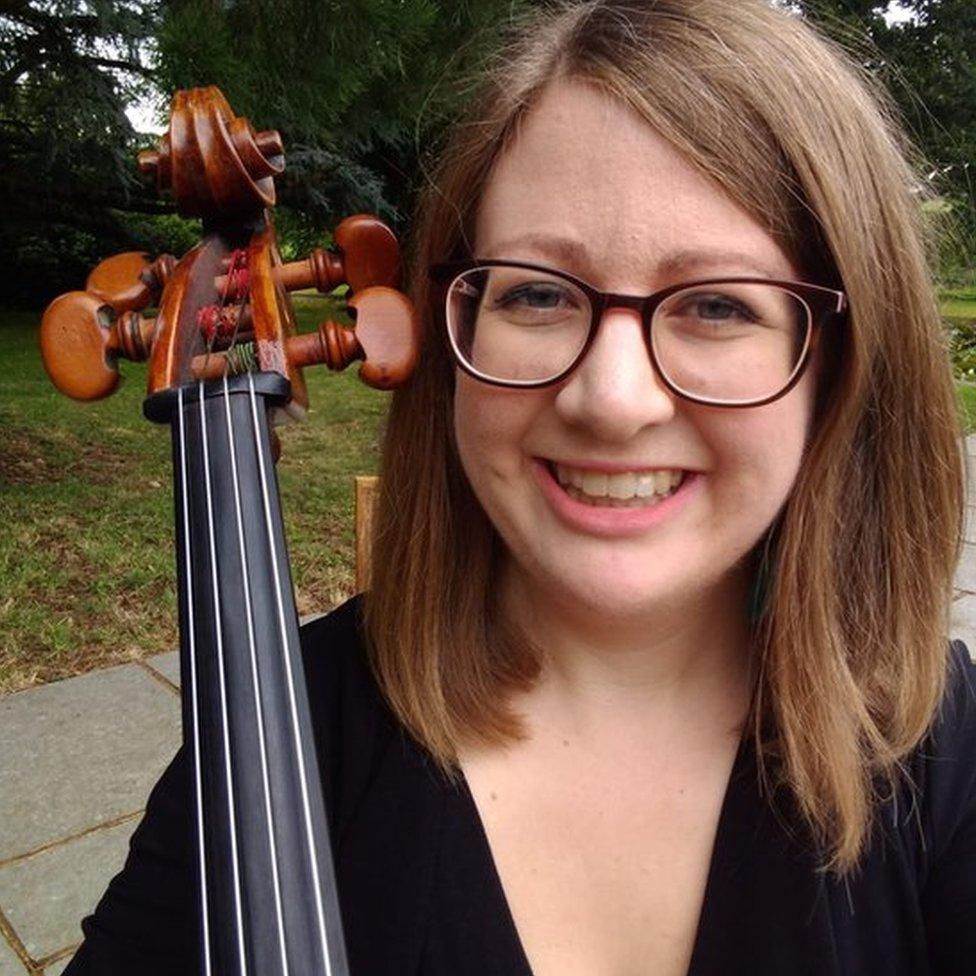
Musician Kirsten Miller says the law "did a lot of damage"

Kirsten went to school in the late 1990s and early 2000s and said she was too young to be aware of the law, but "definitely felt the effects" as there was "no mention at all" about same-sex relationships or transgender identities.
She said it "really did quite a lot of damage" as she began to have feelings for other women, but felt "permanently gaslit" as authority figures could not talk about it and she felt it "didn't exist for anyone else".
Gaslighting is a form of psychological abuse when someone leads you to question your own reality.
"It made a lot of LGBTQ+ people of my age very angry and made a lot of people grow up with shame that never quite goes away," she said.
While she said she felt public opinion had changed for the better for lesbian and gay people, that was not often the case for trans and non-binary people.
'Huge ramifications'
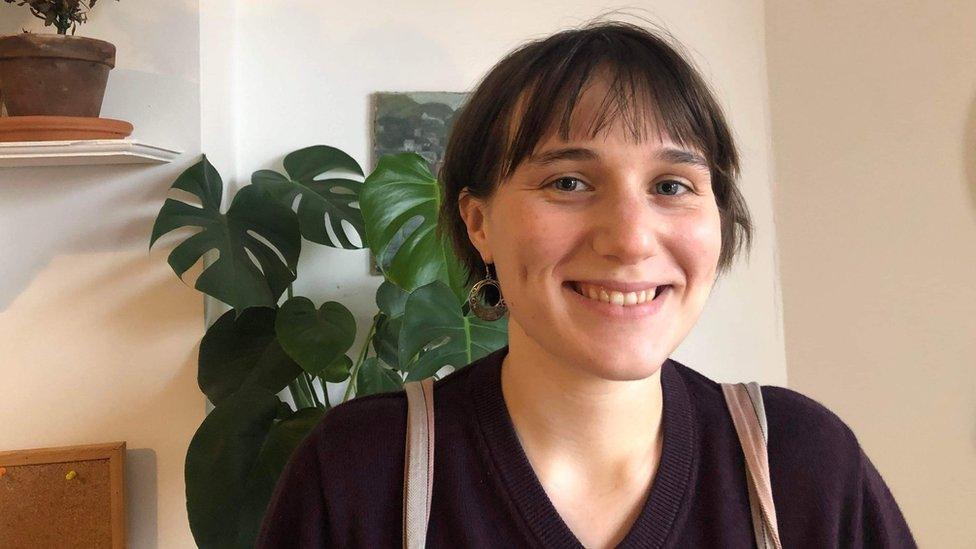
Heledd Holloway said their experience of school just a few years ago was not an inclusive experience
Heledd Holloway, 22, lives in Cardiff, is non-binary and uses them/they pronouns.
While Heledd did not go to school while the law was in place, they said Section 28 "had huge ramifications throughout our social circles and in our community".
Growing up in Gwent, Heledd said the act had been "really hard" on communities where there was a lack of diversity.
Coming from a "very white, working class area of Wales", they said they felt isolated in a school where teachers "did not have the time" to discuss different types of family structures.
"'The other' is still very much there," they said.
"It made being in the community very confusing and it feels like you're stabbing in the dark quite a lot and not really knowing where you can go."
They said it was also a risk then when discussions around nuanced healthcare and safe relationships were only discussed with reference to straight, cisgender couples - people who identify with the sex they were assigned at birth.
'Fight is still on'
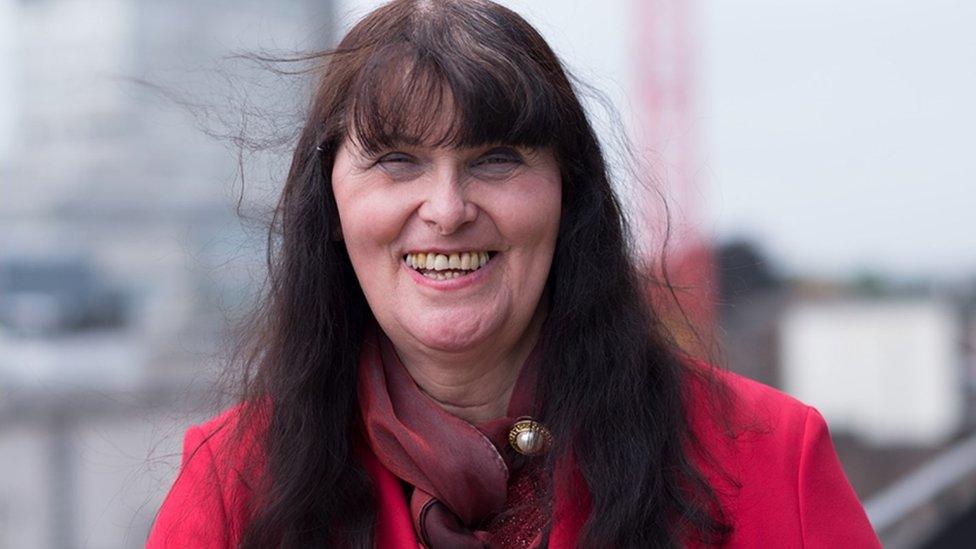
Jenny-Anne Bishop says equality is giving "everybody equality of opportunity"
Jenny-Anne Bishop, from Rhyl, Denbighshire, said the act "hung on in the education system for a long time".
The Welsh government said it wanted "Wales to be the most LGBTQ+ friendly nation in Europe" after being "aware that many LGBTQ+ people, particularly those living in rural areas, can sometimes feel isolated and disconnected from their local communities".
Its draft LGBTQ+ Action Plan, external sets out actions to address those challenges, including a new Wales-wide Pride Fund to support grassroots events and improved access to health services across the country.
Ms Bishop, who works for the Unique Transgender Network, said: "That's really, really important and I'm glad to see Wales is leading and getting that new curriculum down in schools.
"Equality is not about treating everybody the same way, it's about giving everybody equality of opportunity and that covers everybody, not just trans and other LGBTQ+ people.
"The fight is still on, unfortunately."
If you or someone you know has been affected by the issues raised in this article, information on the support available can be accessed through BBC Action Line.

HAYLEY PEARCE PODCAST : Tackling the issues that make your group chats go off
COMING OUT: From secrets to social media, conversations from the LGBTQ+ community in Wales

Related topics
- Attribution
- Published1 February 2021
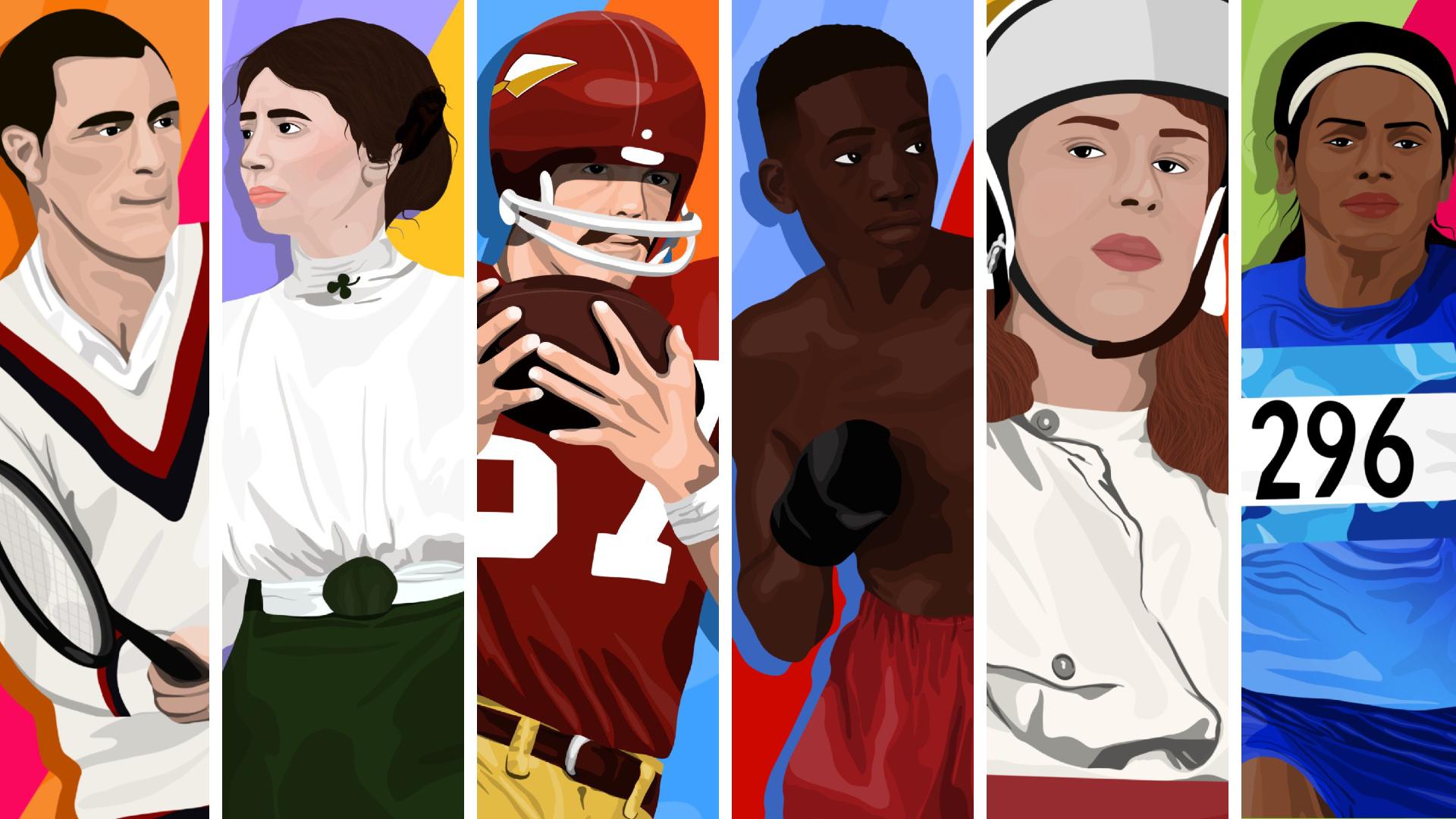
- Published2 February 2022
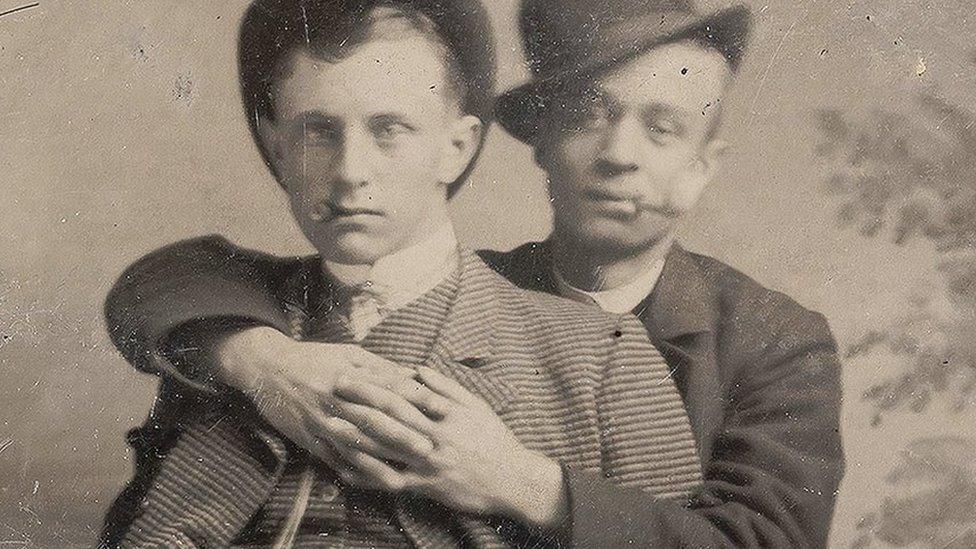
- Published29 July 2021
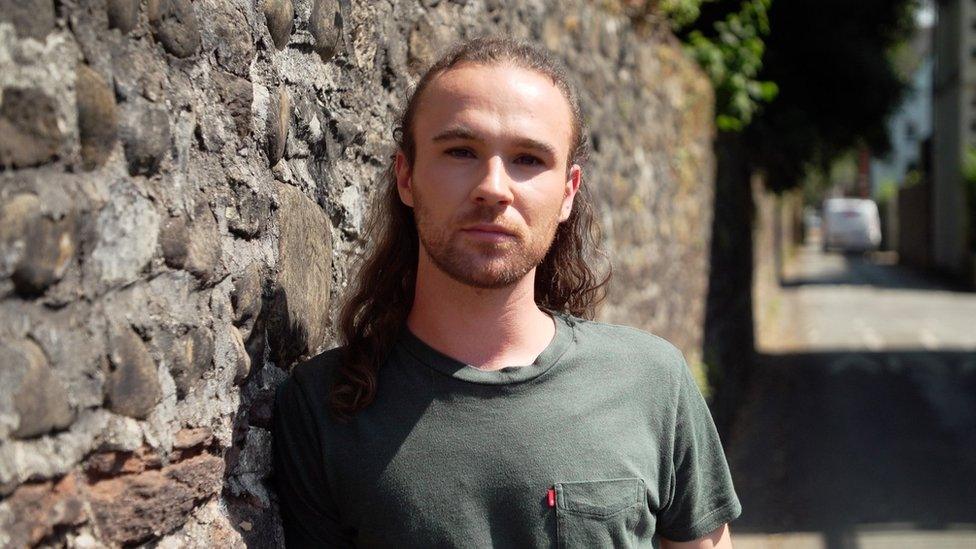
- Published30 October 2021
